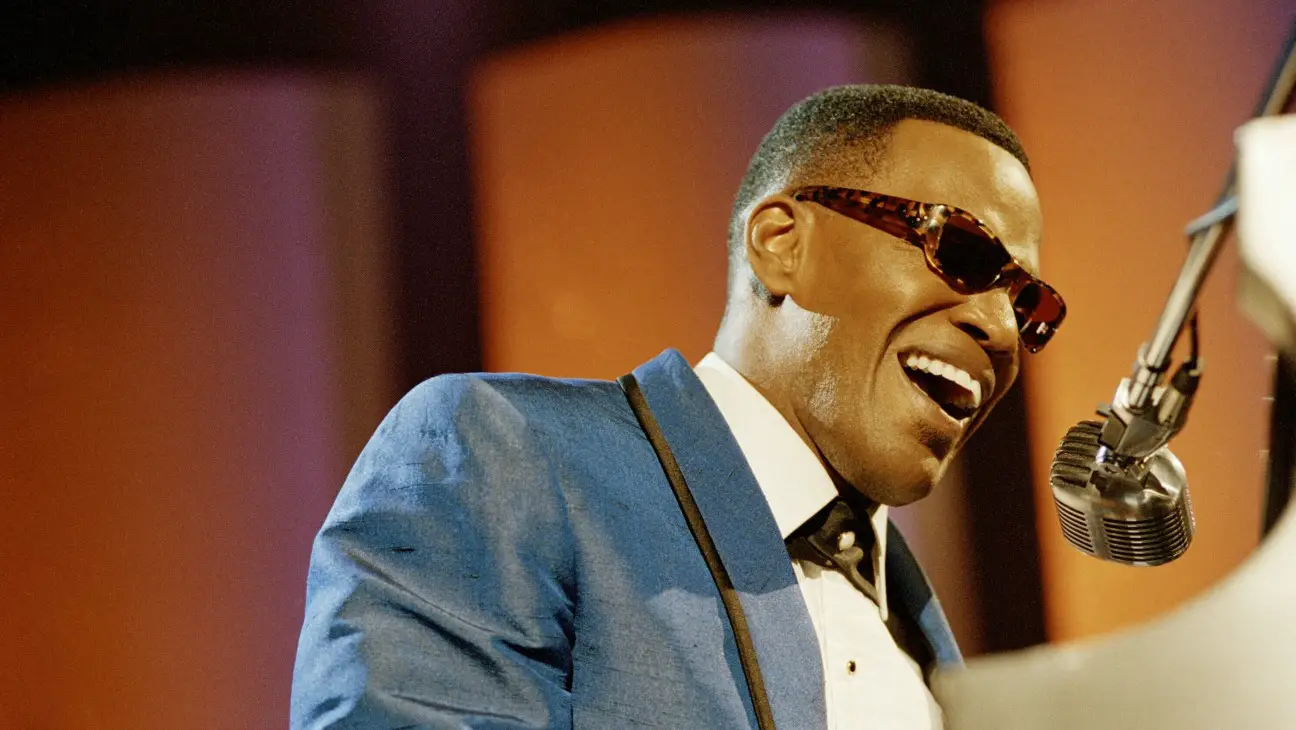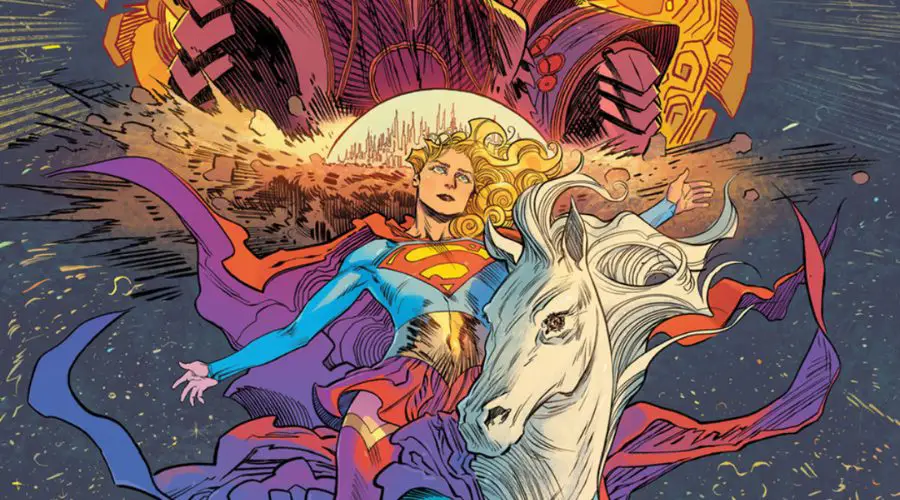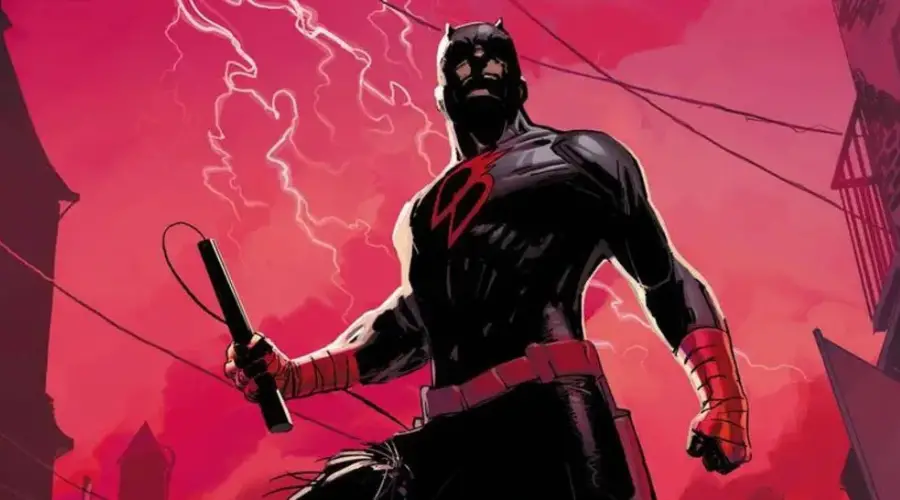Throughout the month of February, Full Circle Cinema celebrates Black History Month by revisiting films told by prominent Black filmmakers. We will reflect on an extraordinary history filled with moments both triumphant and tragic in the still ongoing fight for equality and justice for all. Through the sharing of stories, we pay tribute to the storytellers. Check out our first installment of 2022’s Black History In Film here.
“My ears gotta be my eyes, man. Everything sounds different, you know?”
Ray Charles is one of the most iconic and influential singers of all time. A true pioneer of soul and R&B music, he was not afraid to take creative risks by combining elements from country and pop music with blues, jazz, and gospel styles. His mark on the music industry is still felt today with classics like “Georgia on My Mind” and “I Got a Woman” still playing in various forms of media. Moreover, Charles’ contributions to the Civil Rights movement are indelible as he often stood beside his fellow Black Americans against forms of injustice.
However, Ray Charles was human, just like all of us. On his journey, he made mistakes, suffered greatly, and battled addiction. These qualities do not take away from the singer’s legacy, however. Instead, these gritty, problematic features are put on full display for the world to see in 2004’s Ray. Oftentimes, biographical films glaze over the ugliness of the subject’s life in order to paint a more positive picture. Fortunately, with Ray, the filmmakers do not shy away from Charles’ demons. In fact, a good portion of the film focuses on both the introduction to, and his eventual triumph over, said demons.
READ: ‘Euphoria’ Season 2, Episode 6 Recap/Review “A Thousand Little Trees of Blood”
Directed by Taylor Hackford and written by James L. White, the biopic stars Jamie Foxx in the title role for which he won the Academy Award, BAFTA, SAG, Critics’ Choice, and Golden Globe, becoming the second actor to win all five major lead actor awards for the same performance. Foxx is joined by an outstanding supporting cast including Kerry Washington, Clifton Powell, Terrence Howard, Larenz Tate, and Regina King. The story begins with his upbringing by a single mother in poverty alongside his brother, George. Unfortunately, George accidentally slips into their mother’s washbasin and drowns to death. A moment seeping with trauma and pain that will follow Ray for the rest of his life.
Even longtime, devoted fans of Ray Charles must have been stunned to see the dramatic events of his early life. Shortly after the death of his brother, Ray begins to lose his eyesight. As a result, his mother guides him to begin using his ears to navigate the world around him. During these key moments, young actor C. J. Sanders stands out as a boy filled with fear. The performer also shines in some of the more wholesome moments of the feature such as Ray discovering his love for music, specifically the piano. The setup to the life he would grow to have is painful to watch. However, it expertly sets up a true rising-from-the-ashes narrative. Which Foxx steps into to knock out of the park.
READ: ‘The Young Girls of Rochefort’: Amour de Deux
By the time 2004 rolled around, Foxx was a known Hollywood commodity. Thanks to supporting roles in films like Ali in addition to his own network comedy series The Jamie Foxx Show, Ray is truly Foxx’s first true moment in the dramatic spotlight. His performance is equal parts superb and sympathetic. In many ways, the role is Foxx’s taking on a monumental task. Fortunately, thanks to extensive research, a personal relationship with Charles, and his own undeniable talent, Foxx displays an extremely memorable charismatic performance.
Throughout the feature, fans are taken to the studio and treated to magical moments in which hit songs like “Hit the Road Jack” is created. Along the way, the musician’s tumultuous relationships with his love interests, his bandmates, and his children are on full display. The film also highlights how hard Ray works to remain in control of his own story despite those who would seek to take advantage of his blindness. His substance abuse issues create a satisfying redemption story and his involvement with the Civil Rights movement reminds fans of the power of his voice.
Ray is powerful. Sure, it dramatizes many of the events of the life and times of Ray Charles. But the film does that in a way that feels respectful. The biopic deserves as much praise and celebration it received from fans and critics alike. It remains a masterpiece and, when compared to the litany of musical biopics that have come out since 2004, it feels separate in terms of both quality and sustainability. The film beautifully captures the entire career of one of America’s greatest artists and personalizes viewers with his unique perspective of the world. Ray is overwhelmingly one of the greatest additions to the Black American film catalog.
In honor of the unconscionable murders of Ahmaud Arbery, Breonna Taylor, George Floyd, and countless other Black lives, please take a moment to visit the Black Lives Matter homepage and see how you can help. Spread awareness!
—–
Did you enjoy this article? If so, consider visiting our YouTube channel, where we discuss the latest and greatest in pop culture news.







Leave a Comment